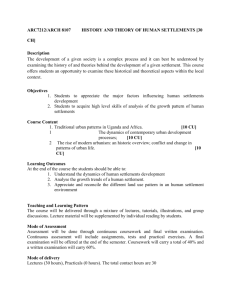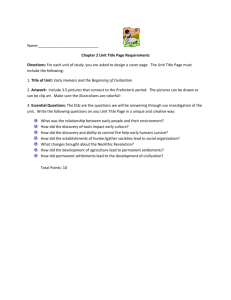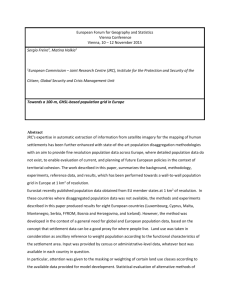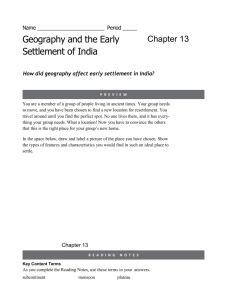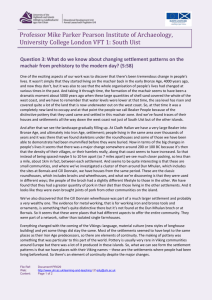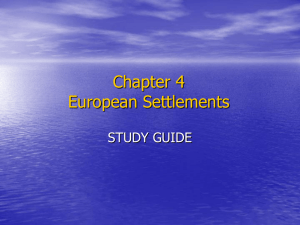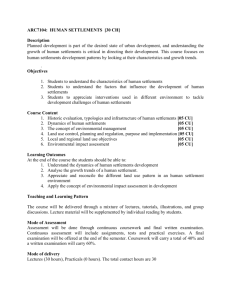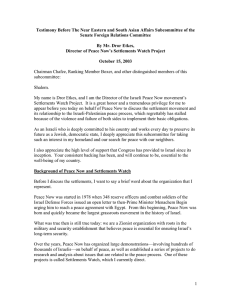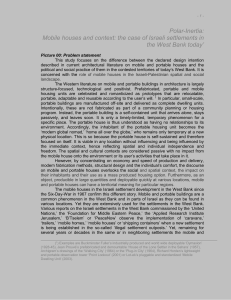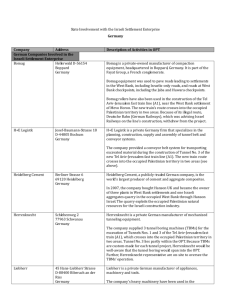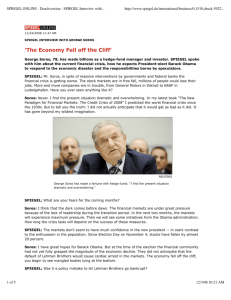THE SPIEGEL DATABASE: AN ANALYSIS
advertisement
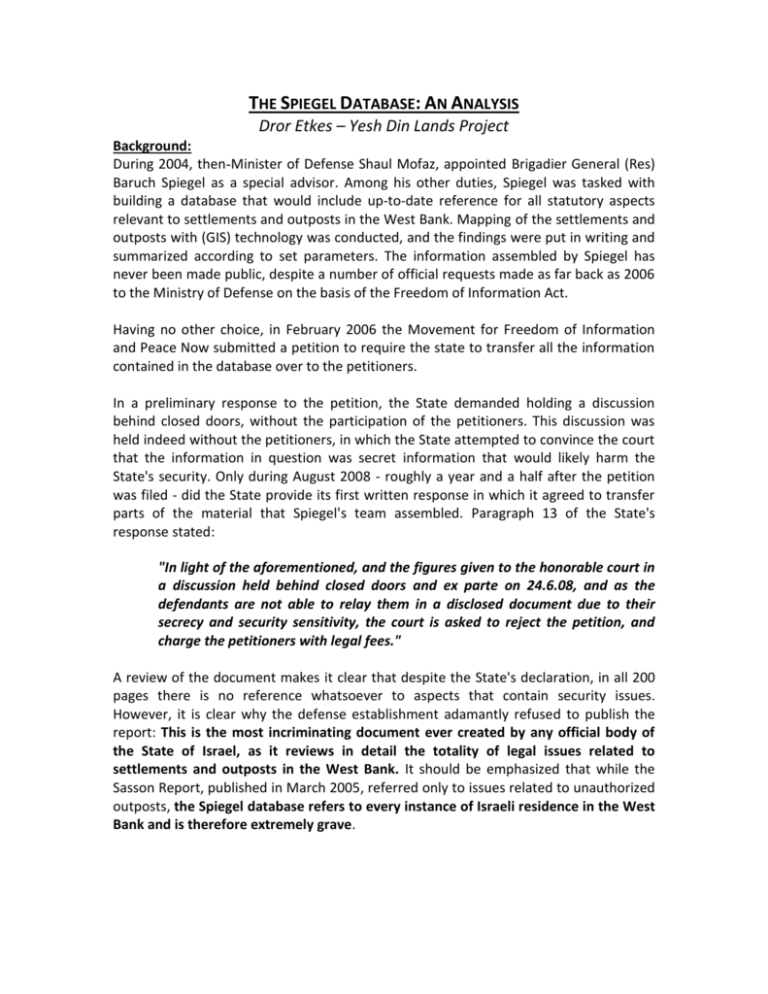
THE SPIEGEL DATABASE: AN ANALYSIS Dror Etkes – Yesh Din Lands Project Background: During 2004, then-Minister of Defense Shaul Mofaz, appointed Brigadier General (Res) Baruch Spiegel as a special advisor. Among his other duties, Spiegel was tasked with building a database that would include up-to-date reference for all statutory aspects relevant to settlements and outposts in the West Bank. Mapping of the settlements and outposts with (GIS) technology was conducted, and the findings were put in writing and summarized according to set parameters. The information assembled by Spiegel has never been made public, despite a number of official requests made as far back as 2006 to the Ministry of Defense on the basis of the Freedom of Information Act. Having no other choice, in February 2006 the Movement for Freedom of Information and Peace Now submitted a petition to require the state to transfer all the information contained in the database over to the petitioners. In a preliminary response to the petition, the State demanded holding a discussion behind closed doors, without the participation of the petitioners. This discussion was held indeed without the petitioners, in which the State attempted to convince the court that the information in question was secret information that would likely harm the State's security. Only during August 2008 - roughly a year and a half after the petition was filed - did the State provide its first written response in which it agreed to transfer parts of the material that Spiegel's team assembled. Paragraph 13 of the State's response stated: "In light of the aforementioned, and the figures given to the honorable court in a discussion held behind closed doors and ex parte on 24.6.08, and as the defendants are not able to relay them in a disclosed document due to their secrecy and security sensitivity, the court is asked to reject the petition, and charge the petitioners with legal fees." A review of the document makes it clear that despite the State's declaration, in all 200 pages there is no reference whatsoever to aspects that contain security issues. However, it is clear why the defense establishment adamantly refused to publish the report: This is the most incriminating document ever created by any official body of the State of Israel, as it reviews in detail the totality of legal issues related to settlements and outposts in the West Bank. It should be emphasized that while the Sasson Report, published in March 2005, referred only to issues related to unauthorized outposts, the Spiegel database refers to every instance of Israeli residence in the West Bank and is therefore extremely grave. The document before us is in fact the written summary of the cartography analysis figures. It includes information on each individual settlement and outpost organized by the following parameters: 1. Location and name 2. Review of ownership status of lands on which the settlement/outpost has been built (indicating State land, survey land, private Palestinians or Israeli land) 3. Status of the building permits under which the settlement/outpost was built 4. Construction outside settlement jurisdiction 5. Seizure and military expropriation orders issued during settlement construction 6. Government decisions authorizing building of settlement 7. The "settling body" that built the settlement/outpost 8. Details of authorization agreement that the State signed with every settling body. 9. Number of residents in each settlement (as of 2007) It is important to note that the document refers primarily to the constructed areas of the settlements, which is its major drawback. There is no methodical or comprehensive reference to the phenomenon of fences that have been illegally erected around settlements. In many cases these fences enclose massive areas of land owned by private Palestinians, who cannot gain access to their land. If there was a document referring to this aspect as well, the overall picture would be even more severe. Summary: The publication of this document is another link in the chain of publications released in recent years that have dealt with four major aspects: 1. 2. 3. 4. Ownership status of the land settlements were built on. Expansion of settlements beyond their official areas of jurisdiction. Number of demolition orders pending against Israeli structures in settlements. Illegal fencing around settlements. There is no doubt that this is the most important database that has ever been exposed on this issue, covering the activities of the State of Israel in the context of the settlement enterprise. It includes reference to additional statutory issues that until now have never been dealt with in public, and in fact proves a colossal violation of the law in nearly every aspect, applicable to most of the settlements – building without permit, land-theft, etc. This proves again that the State and the settlers have an unwritten agreement that divides the work between them: While settlers, through public bodies which they control, actually perform most of the illegal construction and trespassing, the State finances and provides sweeping and ongoing immunity to these criminal activities. This is the only way to understand the reality in which the rule of law in the occupied territories has practically evaporated. Furthermore, the database shows that the conventional distinction between the outposts and settlements is anachronistic and does not help to understand the statutory reality that the State of Israel has created in the West Bank. If before it was customary to determine that the difference between the outposts and settlements is in the legality under Israeli law, Spiegel's database shows that the outposts are only the tip of the iceberg, and illegal activity is mostly taking place within official settlements – making the distinction null and void for all intents and purposes. The continuing refusal of the State to expose this material under the pretext of security is another disgraceful example of how it takes advantage of its authority to conceal information from the international community and citizens of Israel as they formulate educated positions based on facts and not on lies or half-truths.
